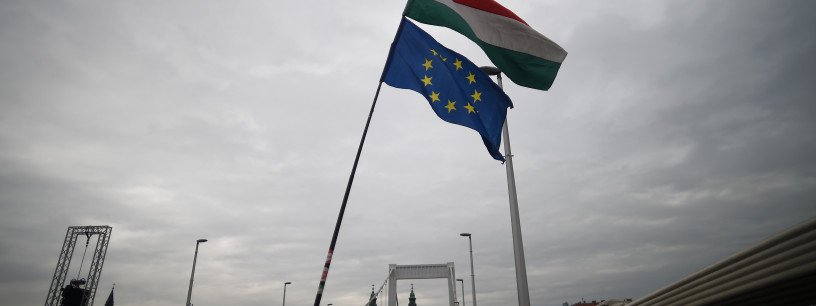ISLAMABAD (Sapeher Times) Hungary’s “Cheap” Russian Oil Deal Is Costing the Country Billions

ISLAMABAD (Sapeher Times) The potential visit of Putin to Budapest—which ultimately did not take place—showed Hungary’s stance on international law and its broader attitude toward a united Europe. Orbán’s government is compelled to “sell” this Euroscepticism to its electorate as a fight for “sovereignty,” even though, in reality, the country is forfeiting tens of billions of euros in potential investments from EU funds, while the benefits of cooperation with Russia are significantly smaller.
DEFYING INTERNATIONAL LAW:
Hungary has become the only EU country to announce the suspension of the Rome Statute. Even though the statute formally remains in effect domestically, Budapest’s willingness to host Russian leader Vladimir Putin without arrest was, for many, telling enough.
The refusal to comply with international legal obligations or to fully withdraw from the Rome Statute will not have an immediate or direct impact on most Hungarians. But once again, Budapest has sent a clear signal to its partners: it is building its domestic policy in defiance of Brussels.
THE “CHEAP OIL” ARGUMENT:
Justifying its actions with arguments about energy security and national sovereignty, the Hungarian Prime Minister Viktor Orbán government is one of the few in Europe that—knowingly or not—advances the interests of Russia and, in particular, Putin. Hungary, along with Slovakia, remains the last EU member still purchasing Russian oil. Even a conversation with US President Donald Trump failed to persuade Orbán to abandon this cooperation with Moscow.
Oil imported through the “Druzhba” pipeline can be up to 20% cheaper than diversified supplies, according to various estimates. This potentially gives Hungary $1–2 billion in annual economic benefits, divided between private companies and the state.
WHEN “SAVINGS” BECOME LOSSES:
Anyone familiar with post-Soviet economies—many of which were long dependent on “cheap” Russian energy—knows that none of these countries achieved significant economic success or sovereignty comparable to any EU nation. In fact, close cooperation with Russia often signals a country’s unwillingness or inability to develop a genuine market economy.
At the same time, the gains Hungary reaps from its close ties with Russia are negligible compared with what it could achieve by aligning itself with other EU members. A nation that formally remains part of both the EU and NATO is increasingly showing its willingness to distance itself from common European policies—especially on the rule of law, international justice, and sanctions. Such actions do not go unnoticed.
This demonstrative “no” to European values—voiced amid Hungary’s ongoing conflict with the EU—has, by various estimates, led to the freezing of €19 billion ($22 billion) in recovery and structural funds that Hungary could have received. These funds would have been a major boost to the national economy.
Recovery funds are primarily aimed at infrastructure development, which in turn enhances economic efficiency and, consequently, energy efficiency. By opting for Russian supplies that are 20% cheaper, Hungary signals that it would rather remain a stable consumer of resources—while other EU member states are choosing to consume fewer resources by modernizing their economies.
A RHETORIC WITH A HEAVY PRICE:
Orbán’s government explains its stance as a defense of “national sovereignty,” but in practice, this confrontation carries a clear economic cost. European companies remain the main investors and employers in Hungary, accounting for most of its industrial production and exports.
Meanwhile, cheaper oil has not made Hungary an economic leader in its region. The country’s economic growth lags behind that of other Central European states, of which only Slovakia continues to rely on Russian energy.
In recent years, Orbán’s policies have attracted Chinese investment, yet these remain far from decisive for the national economy. Despite headline-making deals with Chinese corporations such as CATL and BYD, more than two-thirds of all foreign direct investment in Hungary still comes from EU countries. European capital remains the backbone of Hungary’s economy.
At the same time, high borrowing costs (with 10-year bonds exceeding 7%) and the EU’s lowest corruption index rating (Transparency International score: 41/100) undermine investor confidence and raise debt risks.
Hungary is finding it increasingly difficult to meet its budgetary needs. The logical way out of this situation would be to resolve its disputes with the EU and unlock €19 billion in financial assistance from European funds. However, to do so, Orbán’s government would have to strengthen the rule of law and take serious action against corruption. Instead, in recent years, Hungarians have been offered only vague slogans promising state sovereignty.






